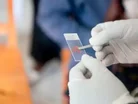World Malaria Day 2012

In comparison to most other charitable events and health awareness days, World Malaria Day is definitely the new kid on the block. It was established in May 2007 by the World Health Organisation (WHO) as a replacement to Africa Malaria Day and has been held on the 25th April every year since.
According to the WHO, the aim of World Malaria Day is to recognise the efforts that are being made across the world to effectively control malaria. The theme for this year’s event is ‘Sustain Gains, Save Lives: Invest in Malaria’ and the organisers believe it “marks a decisive juncture in the history of malaria control.”
They say: “Whether the malaria map will keep shrinking, as it has in the past decade, or be reclaimed by the malaria parasites, depends, to a great extent, on the resources that will be invested in control efforts over the next years.”
So far, such investment has been readily available and it has been incredibly successful; malaria mortality rates have been reduced by a third in Africa and out of the 53 countries outside of the continent where malaria is prevalent, 35 have seen malaria-related deaths fall by 50 percent.
“However,” the organisers say, “these gains are fragile and will be reversed unless malaria continues to be a priority for global, regional and national decision-makers and donors. Despite the current economic climate, development aid needs to continue flowing to national malaria control programs to ensure widespread population access to life-saving and cost-effective interventions. Long-term success will also depend on investments in on-going research and development to combat emerging threats such as parasite resistance.”
GlaxoSmithKline
One of the companies at the forefront of that research, and one of World Malaria Day’s main global partners, is GlaxoSmithKline (GSK). The pharmaceutical company has been heavily involved in the fight against malaria for many years, particularly through its R&D programmes and GSK is committed to finding and developing affordable treatments and vaccines for the disease.
In 2001 GSK established its Tres Cantos research centre in Spain, a location dedicated to investigating potential vaccines for what it calls “diseases of the developing world.” Working in partnership with Medicines for Malaria Venture (MMV), a not-for-profit organisation, GSK is focusing on treating strains of malaria that are drug-resistant; mainly the Plasmodium falciparum parasite and Plasmodium vivax, which is most prominent in Asia and Latin America.
GlaxoSmithKline is also currently carrying out one of the largest trials of a malaria vaccine in the world to date, with over 15,000 participants. Its RTS,S vaccine is described as one of the world’s “most advanced malaria vaccine candidates” and following 20 years of research and development, a Phase III clinical trial launched in May 2009. The trial is still ongoing today and is being carried out in seven African countries across 11 different sites.
The company is hoping that by the end of the 2014 information will be available regarding the drug’s long-term effectiveness in children, enabling national and international health organisations to evaluate its potential for use. Meanwhile, there have been indications that the WHO could recommend RTS,S for use by the end of 2015.
An insight into the development of GSK's RTS,S vaccine:
ExxonMobil
ExxonMobil is the largest corporate donator to malaria efforts of a non-pharmaceutical nature, with a range of initiatives in place aimed at combating the disease, particularly in Africa. It is heavily involved in World Malaria Day and to mark this year’s event it has made a donation of $1 million. This means the company has now donated $150 million to various malaria efforts and community and social development projects in the region.
Providing mosquito nets to families and homes across Africa is one of ExxonMobil’s main focuses and since 2000, when it launched its ‘Africa Health Initiative’, the company has donated a total of 11 million bed nets to the continent.
Like GSK, medication and malaria treatments are also a priority for ExxonMobil and it works in close partnership with the MMV organisation. It was thanks to funding from Exxon that MMV was able to introduce Coartem Dispersible to the market in 2001, “a milestone in malaria drug discovery” and the first malaria medication in the world that was suitable for children.
ExxonMobil also builds upon its business expertise to offer support to countries that is more than just financial in nature. It works with governments and local health authorities to build on the business practices of malaria control projects. “We share our extensive experience with workforce training, project and supply chain management, data monitoring and evaluation and knowledge of economics and marketing,” the company states.
These are just two examples of the ways in which global companies are backing World Malaria Day and the organisers of the event are hoping that this type of support will allow for the 2015 Millennium Development Goalsto be met.
“Sustaining malaria control efforts is an investment in development,” the World Malaria Day organisers explain. “Continued investment in malaria control now will propel malaria-endemic countries along the path to achieving the 2015 Millennium Development Goals, especially those relating to improving child survival and maternal health, eradicating extreme poverty and expanding access to education.”
The Healthcare Global magazine is now available on the iPad. Click here to download it.
- GSK CEO says US is the Top Market for Pharma InvestmentsMedical Devices & Pharma
- Dame Emma Walmsley of GSK breaking healthcare barriersMedical Devices & Pharma
- GSK: A continued healthcare revolution into vaccinationsMedical Devices & Pharma
- New saliva test can detect malaria before symptoms showMedical Devices & Pharma



